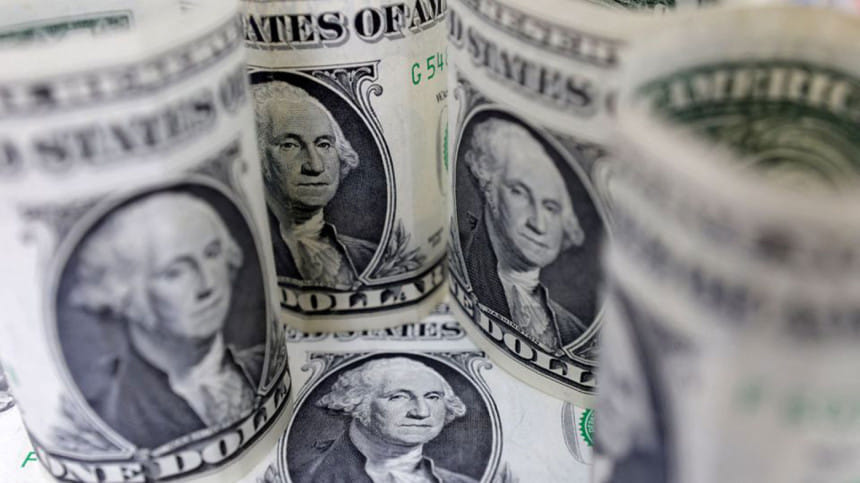Dollar gains against major currencies

The U.S. dollar was firmly higher against major currencies on Monday, while China's yuan slipped as sentiment was soured by rising COVID cases and tightening restrictions in some cities in the world's second-biggest economy.
China's capital Beijing reported two deaths for Nov. 20, with the city's most populous district urging residents to stay at home on Monday, extending a request from the weekend as the country fights numerous COVID-19 flare ups.
The rising cases and the new deaths have cast doubt on the hopes of an early easing in strict pandemic restrictions that have stifled the economy.
"The outlook for China's zero-COVID market will remain a key source of volatility," said Carol Kong, a currency strategist at Commonwealth Bank of Australia.
"If we do see another set of step up in restrictions, it indicates to me that the Chinese officials are still wary of any eventual reopening."
The People's Daily newspaper, the mouthpiece of the Chinese Communist Party, on Monday published an article reiterating the need to catch infections early but avoid taking a "one-size-fits-all" approach.
The onshore yuan opened at 7.1451 per dollar and weakened to a low of 7.1708, the softest level since Nov. 11. The dollar index, which measures the greenback against six major peers, rose 0.412 per cent to 107.330 on Monday, touching its highest level since Nov. 11.
The index advanced 0.5 per cent last week, clocking its biggest weekly gain in a month as investors flocked to the safe haven currency. Despite Monday's gains, the index remains on pace for its worst monthly performance since July 2020.
Hawkish comments from Federal Reserve officials have helped the dollar stabilise after its sharp losses earlier in November, when slightly cooler than anticipated inflation data fanned investor hopes of a slowdown in interest rate hikes.
"Fed has been pushing back against the dovish narrative the market has had after the October inflation data," said Moh Siong Sim, currency strategist at Bank of Singapore, noting that the comments have provided support for the U.S. dollar.
Investors will be keenly interested in the minutes from the Fed's November meeting due to be released on Wednesday for any hints on how high officials ultimately expect to raise interest rates.
Elsewhere, cryptocurrencies remained under pressure, with bitcoin down 0.63 per cent to $16,153.00. FTX owes its 50 biggest creditors nearly $3.1 billion, according to bankruptcy filings, as the collapsed crypto exchange undertakes a strategic review of its global assets.
The euro was down 0.46 per cent to $1.0277, set for a three-day losing streak and hovering at lowest level since Nov. 14, while sterling was last trading at $1.1831, down 0.47 per cent on the day.
The Australian dollar fell 0.49 per cent versus the greenback to $0.664, while the kiwi was down 0.41 per cent at $0.613.

 For all latest news, follow The Daily Star's Google News channel.
For all latest news, follow The Daily Star's Google News channel. 








Comments